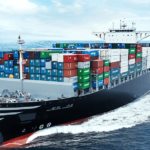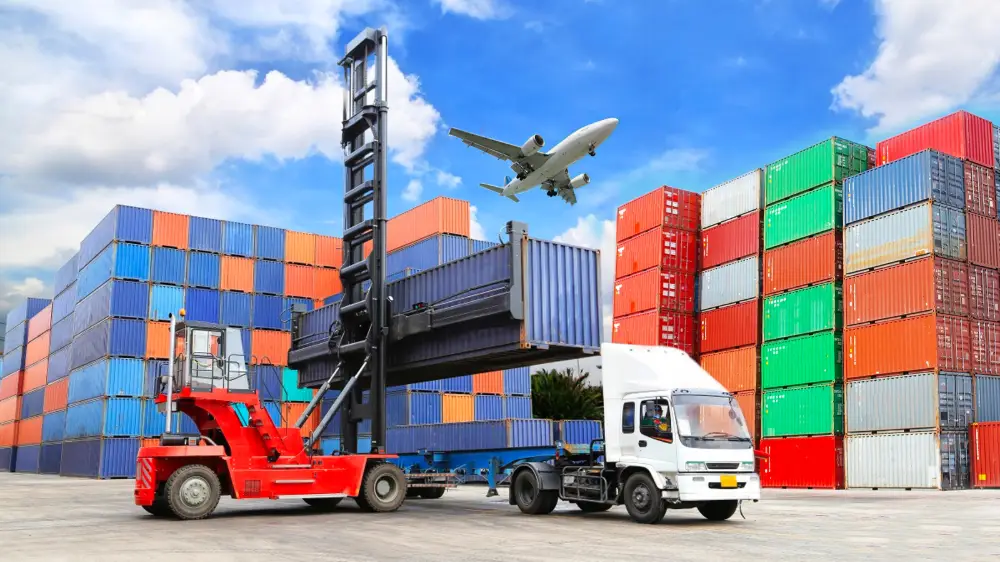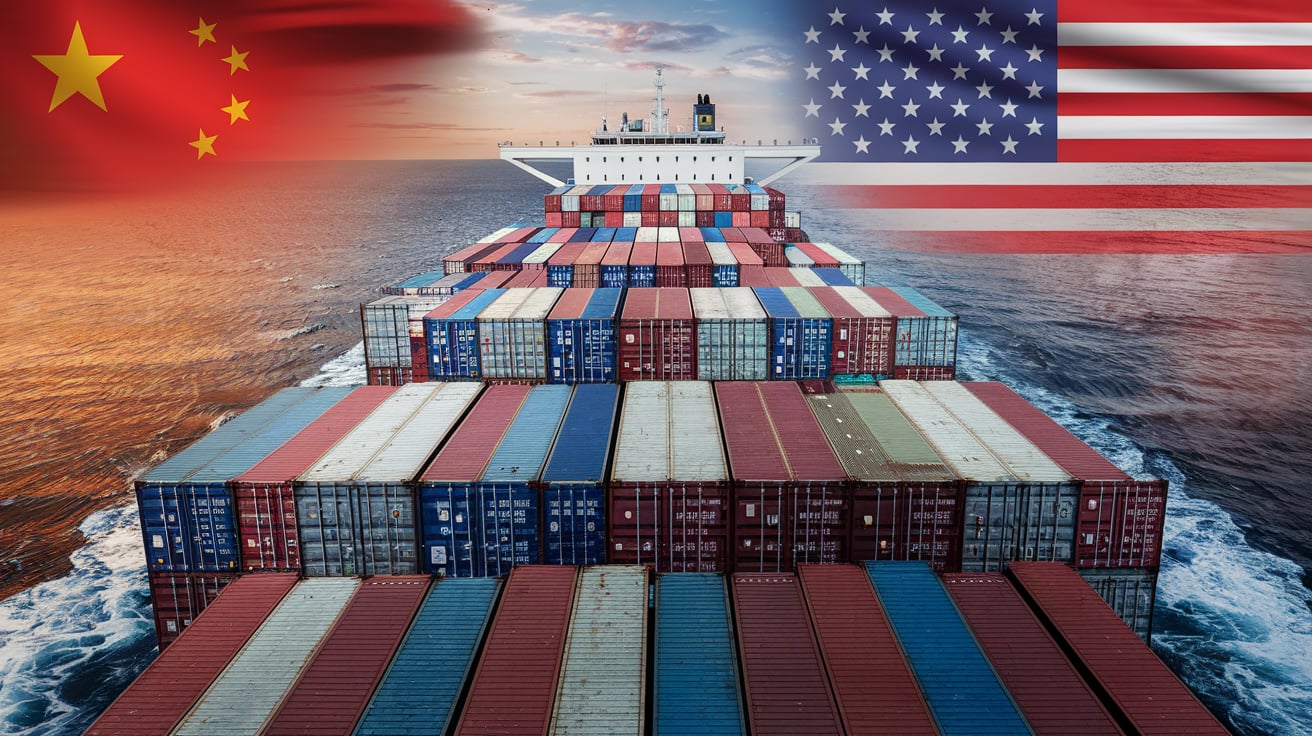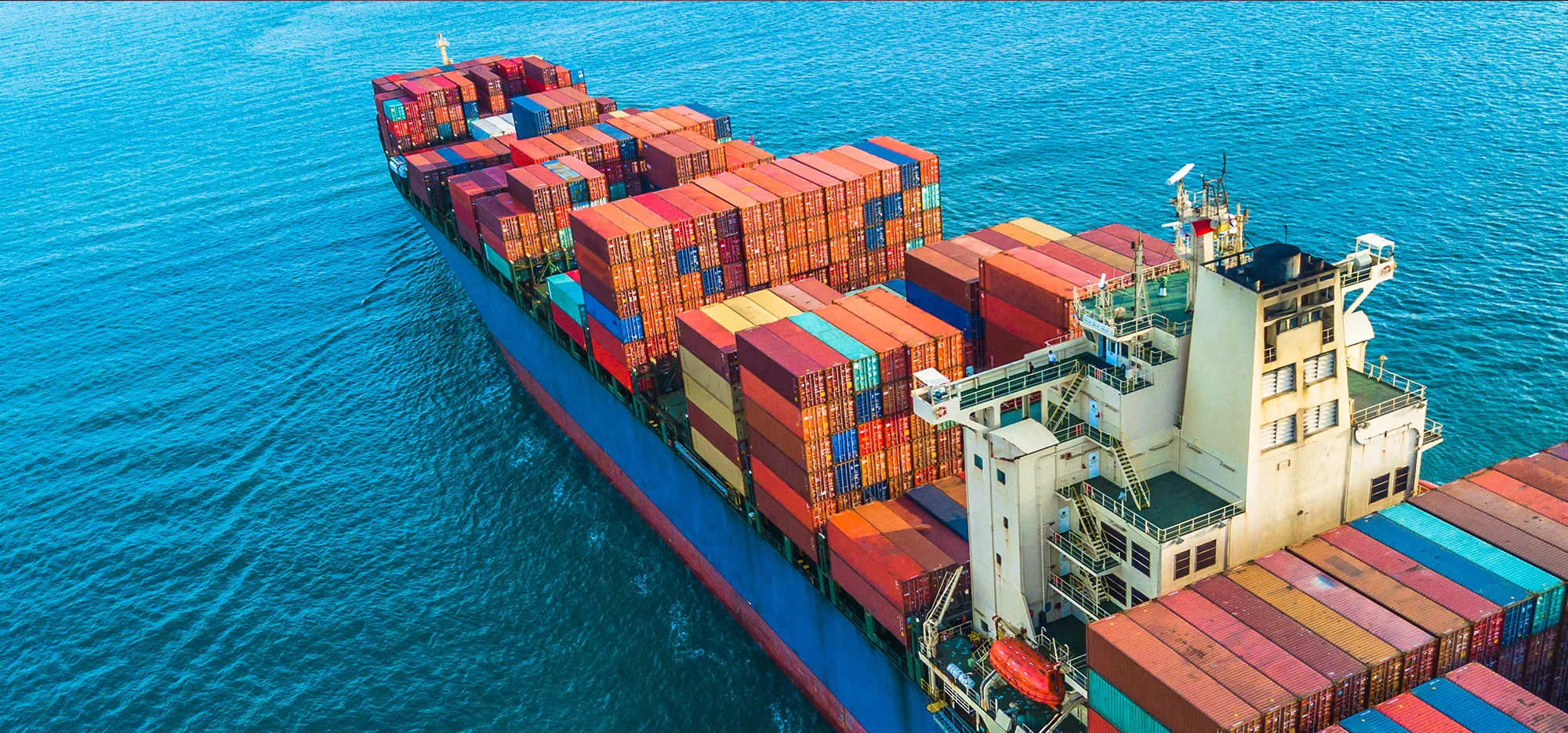In today’s globalized economy, the demand for efficient logistics solutions has never been greater, especially for businesses looking to import goods from China to Saudi Arabia. Navigating the complexities of international shipping can be challenging, making the role of a freight forwarder indispensable. These professionals serve as the crucial link between shippers and transportation services, ensuring that goods are delivered on time, within budget, and in compliance with all relevant regulations. This article explores the importance of partnering with a reputable freight forwarder, the various shipping options available, and the key factors to consider when making your selection. By understanding these elements, businesses can enhance their international shipping operations and streamline their supply chains effectively.
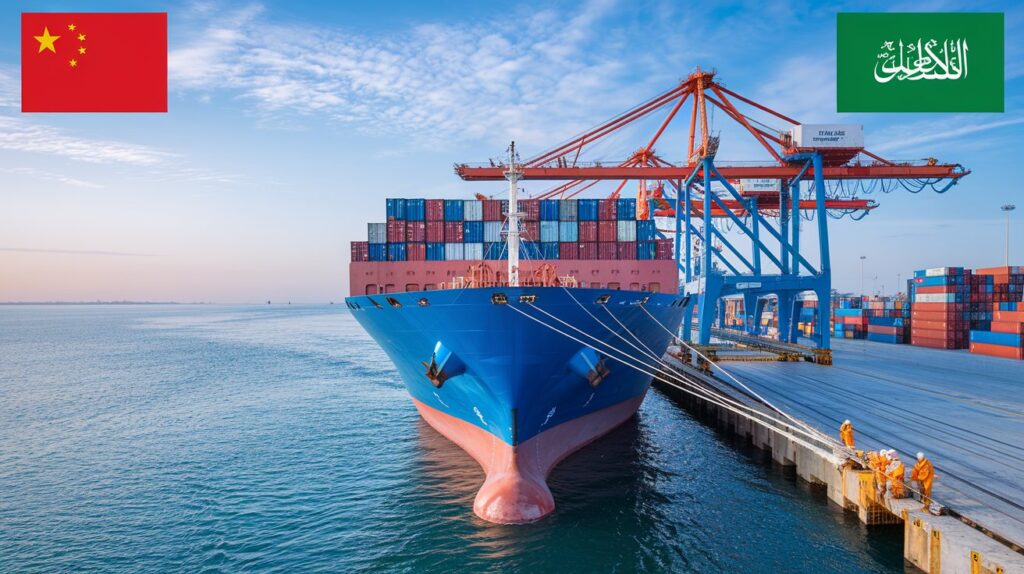
Understanding Freight Forwarding Services
A freight forwarder serves as a key intermediary between shippers and transportation services. They facilitate the movement of goods from suppliers to customers by coordinating logistics, documentation, and transportation processes. In many instances, a freight forwarder acts as a logistical partner, leveraging their network and expertise to navigate international regulations, customs protocols, and various transportation methods. Their role is crucial in ensuring that shipments are delivered on time and in compliance with relevant laws.
Key Responsibilities and Services Offered
Freight forwarders offer a comprehensive range of services to streamline the shipping process. Here are some of the key responsibilities and services typically provided:
| Service | Description |
|---|---|
| Customs Clearance | Handling the necessary documentation to ensure compliance with import/export regulations. |
| Cargo Insurance | Offering insurance options to protect goods against loss or damage during transit. |
| Warehousing Solutions | Providing storage options for goods before and after shipment, ensuring optimal inventory management. |
| Transportation Management | Coordinating various modes of transportation (air, sea, land) for efficient delivery. |
| Documentation Preparation | Preparing shipping documents such as bills of lading, packing lists, and commercial invoices. |
| Consultation | Advising clients on the best shipping options, routes, and compliance requirements. |
Understanding these key roles can help importers and exporters make informed decisions when choosing a freight forwarding service, ultimately leading to smoother logistics operations.
Shipping Options from China to Saudi Arabia
When considering shipping options from China to Saudi Arabia, businesses can utilize various transportation methods. Each option has its unique benefits and considerations, making it essential to analyze the best fit based on cargo needs and timelines.
Air Freight
Air freight is an excellent choice for shipments that require speed and efficiency. This method is particularly beneficial for urgent deliveries or high-value goods.
Transit Times and Costs
The transit times for air freight from China to Saudi Arabia typically range from 3 to 7 days. However, these times can vary based on flight schedules and customs clearance. Costs may vary significantly depending on the weight of the cargo and the specific routes taken. For instance:
| Cargo Weight | Estimated Cost (USD) | Transit Time |
|---|---|---|
| Up to 100 kg | $600 – $1,200 | 3 – 5 days |
| 100 – 500 kg | $1,200 – $2,500 | 5 – 7 days |
| 500 kg and above | $2,500 and up | 5 – 7 days |
Major airlines operating between China and Saudi Arabia include Emirates, Qatar Airways, and Saudi Arabian Airlines, ensuring a variety of flight options.
Major Airports and Airlines
Key airports involved in air freight from China to Saudi Arabia include:
- King Khalid International Airport (RUH) in Riyadh
- King Abdulaziz International Airport (JED) in Jeddah
These airports are well-equipped to handle international cargo operations and have established customs facilities to expedite processing times.
Sea Freight
For larger shipments or those with a longer lead time, sea freight is a viable option. This method is generally cost-effective, especially for bulk goods.
FCL (Full Container Load) vs. LCL (Less than Container Load)
Choosing between FCL and LCL depends on the volume of goods being shipped:
-
FCL (Full Container Load): Best for larger shipments where the entire container is used. This option minimizes handling and reduces transit times.
-
LCL (Less than Container Load): Suitable for smaller shipments where multiple consignments share a container. This approach can provide cost savings but may lead to longer transit times due to additional handling.
| Shipping Method | Typical Transit Time | Cost Comparison |
|---|---|---|
| FCL | 20 – 30 days | Higher upfront cost but cost-effective for large volumes. |
| LCL | 30 – 45 days | Lower cost for smaller volumes but may incur additional fees. |
Main Ports and Shipping Routes
Major shipping routes from China to Saudi Arabia primarily involve ports such as:
- Shanghai
- Shenzhen
- Ningbo
The principal receiving ports in Saudi Arabia are:
- Jeddah Islamic Port
- King Abdulaziz Port in Dammam
Utilizing these ports can enhance shipping efficiency through established maritime trade lanes.
Express Shipping for Urgent Cargo
For businesses with time-sensitive shipments, express shipping offers a rapid solution. This option combines air freight efficiency with expedited customs clearance processes, ensuring that goods reach their destination swiftly. Express shipping services typically guarantee delivery within 1 to 3 days, albeit at a premium cost.
By understanding the available shipping options from China to Saudi Arabia, businesses can make informed decisions that align with their logistical needs and budget. Partnering with a professional freight forwarder like Dantful International Logistics can further streamline the shipping process, providing tailored solutions for all your freight forwarding requirements. With services including Customs Clearance, Insurance Services, and Warehouse Services, Dantful stands ready to support your international logistics needs.
You may be interested in the following related articles:
- Shipping from China to Syria
- Shipping from China to Yemen
- Shipping from China to Oman
- Shipping From China To Afghanistan
- Shipping from China to Bahrain
- Shipping From China To Iraq
- Shipping From China To Israel
- Shipping From China To Jordan
- Shipping From China to KUWAIT
- Shipping from China to Qatar
Factors to Consider When Choosing a Freight Forwarder
Selecting the right freight forwarder for your shipments from China to Saudi Arabia is crucial to ensuring smooth logistics operations. Here are key factors to consider in your decision-making process:
Experience and Expertise in China-Saudi Arabia Trade
When choosing a freight forwarder, evaluate their experience and expertise specifically in the China-Saudi Arabia trade corridor. A forwarder with a deep understanding of the unique challenges and requirements involved in this trade route can offer invaluable insights and solutions tailored to your needs.
Experts in this field are familiar with the complexities of customs regulations and can provide advice on best practices to facilitate efficient and compliant shipping.
Range of Services Offered
A comprehensive range of services is essential for a freight forwarder to effectively manage your logistics. Look for providers that offer the following:
- Customs Clearance: Expertise in navigating customs regulations to ensure smooth importation.
- Warehouse Services: Options for short- or long-term storage of goods.
- Insurance Services: Coverage options to protect your cargo during transit.
- Transportation Options: Flexibility in choosing between air, sea, and land transport.
Having a one-stop-shop for all logistics needs can significantly simplify your shipping processes.
Network and Partnerships in Both Countries
Evaluate the freight forwarder’s network and partnerships within both China and Saudi Arabia. A strong local presence can facilitate better communication, support, and operational efficiencies. Additionally, established relationships with carriers, customs brokers, and port authorities can enhance service reliability and responsiveness.
Pricing and Cost Transparency
Understanding the cost structure of shipping services is vital. Seek a freight forwarder that demonstrates transparency in pricing, including potential hidden fees. It is beneficial to request a detailed breakdown of all costs associated with shipping, such as:
- Freight charges
- Customs duties and fees
- Handling charges
- Insurance premiums
Comparing these costs across multiple providers can lead to more informed budgetary decisions.
Communication and Customer Service
Effective communication is a cornerstone of successful logistics operations. Opt for a freight forwarder that prioritizes customer service and provides dedicated support throughout the shipping process. This includes:
- Timely updates on shipment status
- Quick responses to inquiries
- Proactive handling of issues or delays
A responsive forwarder can significantly alleviate stress and enhance the overall shipping experience.
Technology and Tracking Capabilities
In today’s digital age, technology plays a critical role in freight forwarding. Look for a provider that leverages advanced technology for tracking shipments. Features to consider include:
- Real-time tracking updates
- User-friendly online portals for managing shipments
- Automated notifications for critical milestones
These technological capabilities can provide greater visibility and control over your logistics processes.
Customs Clearance Expertise
Given the complexities of customs regulations, selecting a freight forwarder with robust customs clearance expertise is crucial. They should be knowledgeable about the necessary documentation, tariffs, and duties involved in importing goods into Saudi Arabia. Their proficiency in handling customs procedures can prevent delays and ensure compliance with local laws.
Insurance Options
Finally, consider the insurance options available through your freight forwarder. Protecting your shipment against potential loss or damage is essential, especially for high-value or fragile goods. A reputable forwarder should provide various insurance plans and assist you in selecting the best coverage for your needs.
Steps to Select the Right Freight Forwarder from China to Saudi Arabia
Choosing the right freight forwarder requires careful assessment and due diligence. Here are essential steps to guide you through the selection process:
Assess Your Specific Shipping Needs
Start by identifying your specific shipping requirements, including:
- Type of goods being shipped
- Shipping volume and frequency
- Timeline for delivery
- Budget constraints
Understanding these needs will help you communicate effectively with potential forwarders and determine who can best meet your requirements.
Research Potential Forwarders
Conduct thorough research on freight forwarders that specialize in the China-Saudi Arabia route. Check their websites, read about their services, and explore their experience in handling similar shipments. Look for industry affiliations, certifications, and any awards that may indicate their credibility and reliability.
Request and Compare Quotes
Reach out to multiple freight forwarders to request comprehensive quotes. Be sure to provide them with the same information regarding your shipping needs to ensure consistency in the quotes. Once received, compare the quotes not only based on price but also on the services included, transit times, and any additional charges.
Check References and Reviews
Before making a final decision, check references and reviews from previous clients. This step can provide valuable insights into the freight forwarder’s reliability, professionalism, and the overall quality of their services. Websites like Trustpilot and Google Reviews can be useful for gathering feedback.
Evaluate Communication and Responsiveness
Assess the communication style and responsiveness of the freight forwarders you are considering. Effective communication is crucial for a successful partnership. Pay attention to how quickly they respond to your inquiries and how clearly they explain their services and processes.
Consider a Trial Shipment
If possible, consider conducting a trial shipment with your chosen freight forwarder before committing to larger volumes. A trial shipment allows you to assess their performance, service quality, and reliability in real-time. This hands-on experience can help solidify your decision and ensure that the forwarder meets your expectations.
By following these steps and considering the relevant factors, you can select a freight forwarder that aligns with your logistics needs and fosters a successful shipping experience from China to Saudi Arabia. For dependable freight forwarding services, Dantful International Logistics offers a highly professional, cost-effective, and high-quality one-stop solution for global traders. Explore our offerings today at Dantful International Logistics.
Common Challenges and How to Avoid Them
Shipping from China to Saudi Arabia presents a range of challenges that can affect the overall efficiency and cost-effectiveness of logistics operations. Understanding these challenges and knowing how to mitigate them can significantly enhance your shipping experience.
Customs Delays and Documentation Issues
Customs clearance is a critical phase in international shipping that can lead to significant delays if not managed effectively. Problems often arise from incomplete or incorrect documentation, leading to hold-ups in processing.
How to Avoid:
- Thorough Documentation: Ensure all required documents, such as commercial invoices, packing lists, and bills of lading, are accurate and complete.
- Work with Experts: Partner with a freight forwarder that specializes in customs clearance and is familiar with regulations governing both China and Saudi Arabia. Their expertise can help navigate complex customs requirements efficiently.
- Pre-shipment Consulting: Engage in pre-shipment consultations to assess any potential customs issues that may arise and address them before shipment.
Hidden Costs and Fees
Unexpected costs can significantly inflate your shipping budget, leading to financial strain. Hidden fees may arise from various sources, including customs duties, handling charges, and storage fees.
How to Avoid:
- Detailed Quotation: Request detailed quotes from your freight forwarder that outline all potential costs associated with your shipment. This should include freight charges, customs duties, insurance, and any applicable taxes.
- Transparent Communication: Maintain open communication with your forwarder regarding pricing structures and any changes that might affect your total costs.
- Negotiate Terms: Don’t hesitate to negotiate terms that include a cap on additional fees or a fixed price agreement to mitigate unexpected charges.
Cargo Damage or Loss
Cargo damage or loss during transit can lead to financial losses and delays in receiving goods. This risk is particularly pronounced in international transportation due to the various handling processes involved.
How to Avoid:
- Insurance Coverage: Secure adequate insurance coverage for your shipments. Discuss options with your freight forwarder to choose a plan that meets your needs.
- Proper Packaging: Ensure that goods are packaged appropriately to withstand the rigors of international transport. Use high-quality materials and follow best practices for securing items in transit.
- Regular Inspections: Implement a system for regular inspections of cargo before and after shipping to identify any potential issues early on.
Communication Barriers
Effective communication is essential for successful logistics operations. Language barriers, time zone differences, and varying communication styles can hinder the flow of information between parties.
How to Avoid:
- Bilingual Support: Choose a freight forwarder that offers bilingual support to facilitate clear communication. This is especially important when dealing with complex documents or regulations.
- Use Technology: Leverage technology for real-time updates and tracking. Many modern freight forwarders provide online dashboards or mobile apps that enhance communication and provide instant access to shipment details.
- Regular Check-ins: Schedule regular check-ins with your forwarder to discuss any ongoing issues or changes in shipping requirements, ensuring that everyone is on the same page.
Tips for a Successful Partnership with Your Freight Forwarder
Building a successful partnership with your freight forwarder is essential for ensuring seamless logistics operations. Here are key strategies to foster a collaborative and productive relationship.
Clear Communication of Expectations
Establishing and communicating expectations from the outset is crucial for a successful partnership.
- Outline Requirements: Clearly outline your shipping needs, including timelines, budget constraints, and service expectations.
- Discuss Goals: Share your long-term goals for your business and how logistics fit into these plans. This will help your freight forwarder align their services with your objectives.
- Encourage Feedback: Foster an environment where both parties can provide feedback on performance and processes, encouraging continuous improvement.
Regular Performance Reviews
Conducting regular performance reviews can help assess the effectiveness of your freight forwarder and identify areas for improvement.
- Establish KPIs: Define key performance indicators (KPIs) that measure success, such as on-time delivery rates, cost efficiency, and communication effectiveness.
- Schedule Reviews: Hold periodic review meetings to discuss performance against these KPIs, allowing for adjustments in strategies or processes as needed.
- Address Issues Promptly: If challenges arise, address them immediately with your freight forwarder to prevent escalation and maintain a constructive partnership.
Building a Long-Term Relationship
Cultivating a long-term relationship with your freight forwarder can lead to enhanced service levels, better rates, and more tailored solutions.
- Invest Time: Engage with your freight forwarder beyond transactional interactions. Take the time to understand their processes and capabilities.
- Share Business Insights: Provide updates on your business growth, changes in shipping volume, or future plans. This information can help your forwarder adapt their services to better meet your evolving needs.
- Loyalty Benefits: Establishing a good rapport can lead to loyalty benefits, such as preferential rates or priority service during peak periods.
By addressing common challenges and implementing these tips for partnership success, businesses can enhance their shipping operations from China to Saudi Arabia. Dantful International Logistics is committed to providing professional, reliable, and high-quality logistics solutions tailored to your needs.

Young Chiu is a seasoned logistics expert with over 15 years of experience in international freight forwarding and supply chain management. As CEO of Dantful International Logistics, Young is dedicated to providing valuable insights and practical advice to businesses navigating the complexities of global shipping.








